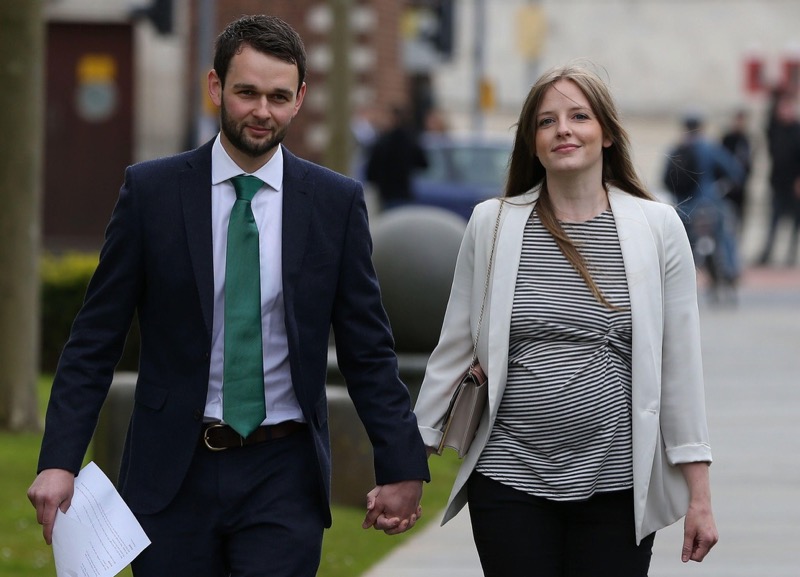After almost eight years, the saga of the Ashers Bakery case is hopefully now over. LGBTQ rights activist Gareth Lee had taken his case to the European Court of Human Rights in a last roll of the dice. The court has ruled Mr Lee’s case inadmissible as he did not raise his convention rights in the domestic courts. The end result is that the ruling of the UK Supreme Court stands. Human rights have been affirmed and everyone is protected from compelled or forced speech.
The case dates back to 2014 when Mr Lee ordered a cake with the slogan “support gay marriage” from a bakery owned by the McArthur family. The order was initially accepted but the following day the bakery called Mr Lee to say it could not fulfil his order because it was a “Christian business”. The bakery apologised and refunded his money.
Mr Lee, backed by the Equality Commission in Northern Ireland, sued the bakery, Ashers, for damages for alleged discrimination on the grounds of his sexual orientation, political opinion and the religious beliefs of the bakery owners. Mr Lee won his case at first instance at Belfast County Court on all three grounds in 2015. During subsequent appeals the High Court and the Court of Appeal also sided with Mr Lee.
However, in October 2018 five UK Supreme Court judges ruled in favour of Ashers, unanimously finding that there had been no discrimination on grounds of sexual orientation, religious belief or political opinion. The Supreme Court agreed that it is an affront to human dignity to deny someone a service because of that person’s race, gender, disability, sexual orientation or any of the other protected personal characteristics. But Lady Hale said: “That is not what happened in this case and it does the project of equal treatment no favours to seek to extend it beyond its proper scope.” This is perhaps the key line in the judgment. There was no discrimination in this case, and over-reaching puts all human rights at risk.
Fundamentally this was a case about freedom of conscience, speech and belief, and whether someone could be forced to create a message they profoundly disagreed with. The issue was always the message rather than the messenger. The Supreme Court ruling protects everyone from compelled speech and even LGBTQ activist Peter Tatchell came out in support of the bakers.
In ruling the case inadmissible, the European Court has effectively backed the Supreme Court ruling. The European Court reiterated that in order for a complaint to be admissible, the convention arguments must be raised explicitly or in substance before the domestic authorities. The applicant had not invoked his convention rights at any point in the domestic proceedings and so his appeal failed.
The mark of a free and democratic society is that competing views are discussed and debated. We have seen an increase in cancel culture and “no-platforming” which undermine a free and fair society. The Supreme Court has rightly ruled that it would be wrong to compel the McArthurs to use their creative talents to promote a political cause which is against their deeply held views.
The case has captured imaginations and split opinions. It raised profound questions about how we balance competing rights. In the end, the Supreme Court wrestled with all the issues and handed down a ruling that protects not just Christians, but everyone from compelled speech.
As writers such as TS Eliot, Tom Holland and Larry Siedentop have noted, our equality and human rights framework is, whether its adherents realise it or not, deeply Christian. We inhabit a society that continues to live off the fruits of the Christian story, while simultaneously chopping down the very tree that sustains that fruit. There is a certain irony that the very human rights that Mr Lee sought to rely on and use against the bakers are fundamentally Christian.
It's disappointing that this case has been pitched as Christians versus the LGBTQ community. The Equality Commission in Northern Ireland must accept some of the responsibility for that framing. In reality both sides were arguing about equality, dignity and human rights based on our image-bearing nature (though such explicit language wasn’t used).
While some will say common sense has prevailed, but it is equally true to say that the Christian story has prevailed. Christians need to get better at understanding and articulating the biblical foundations for human rights.
It turns out there is no such thing as a “gay cake”. Perhaps now Ashers can get back to making cakes, we can get back to eating them and we can all stop talking about them.
Peter Lynas is the UK director of the Evangelical Alliance and a former barrister.



 Loading ...
Loading ...
What do you think?
You can post as a subscriber user ...
User comments (0)